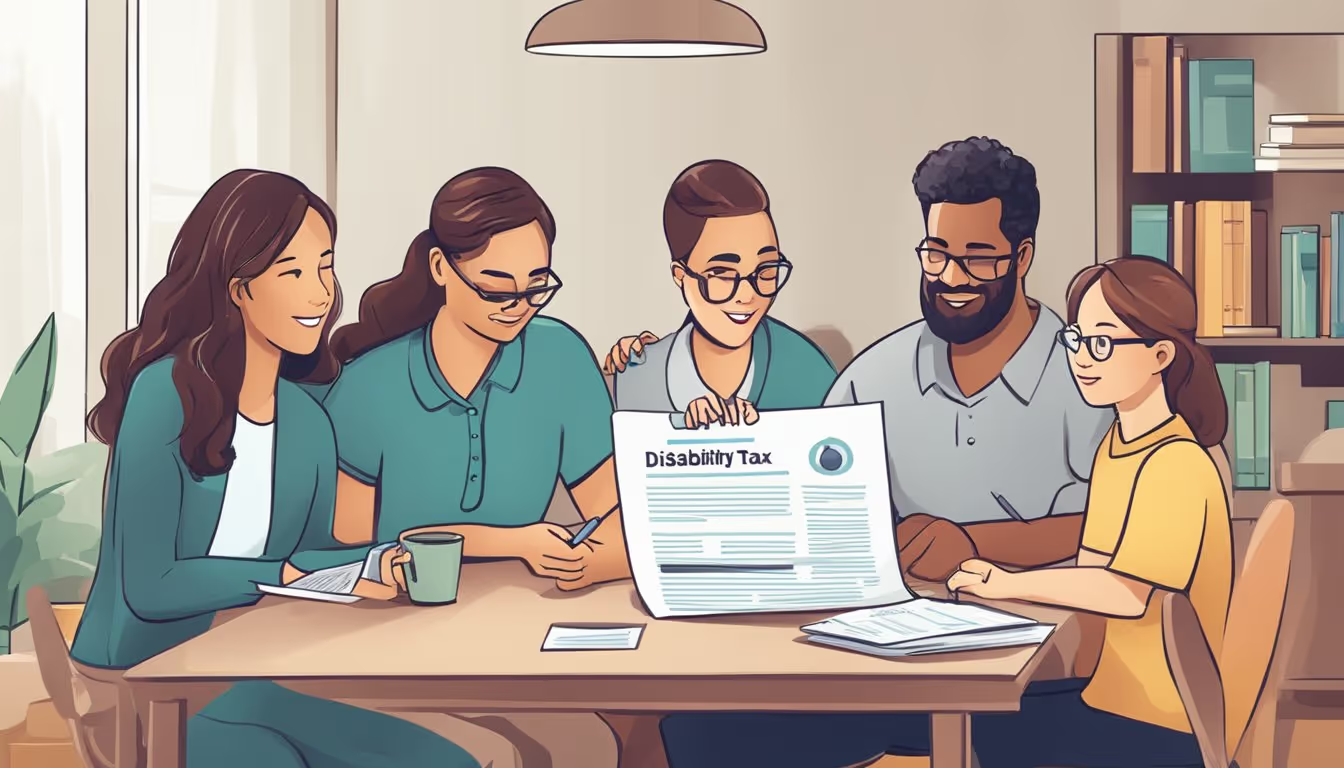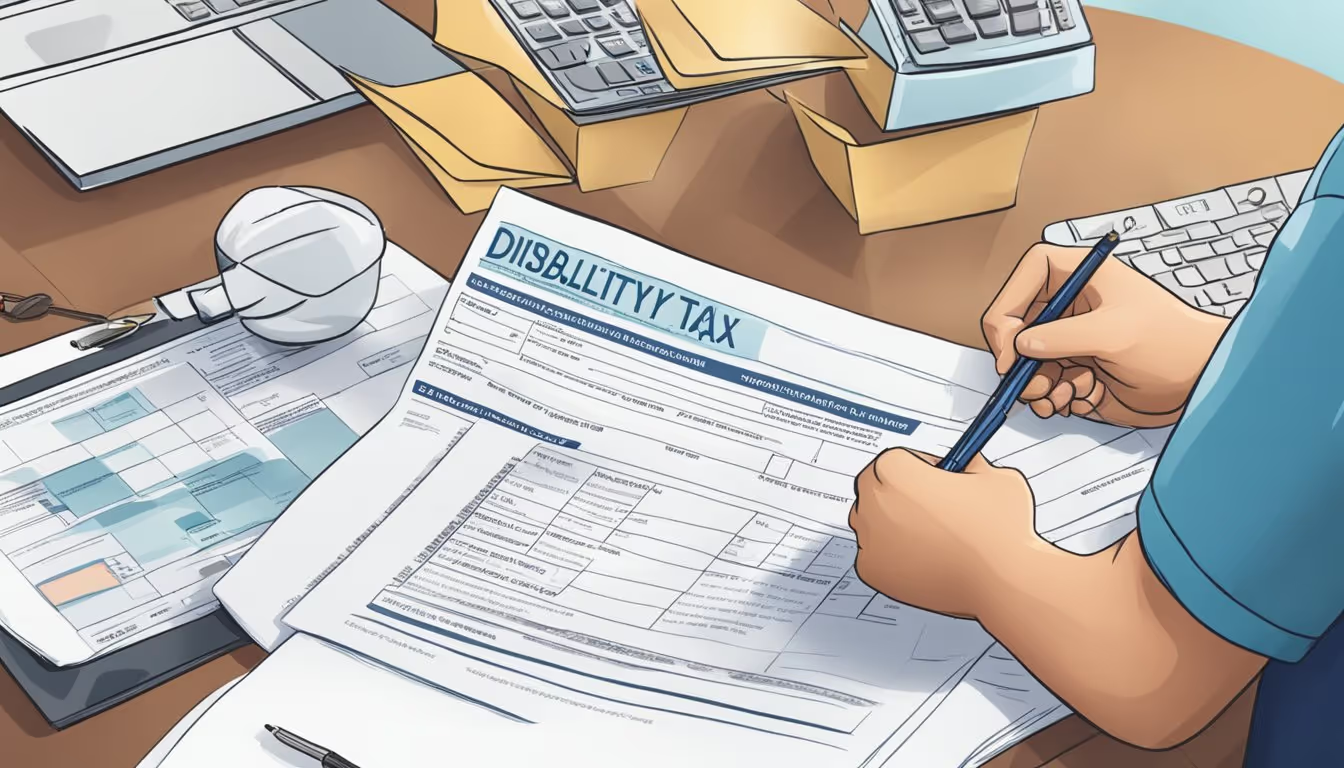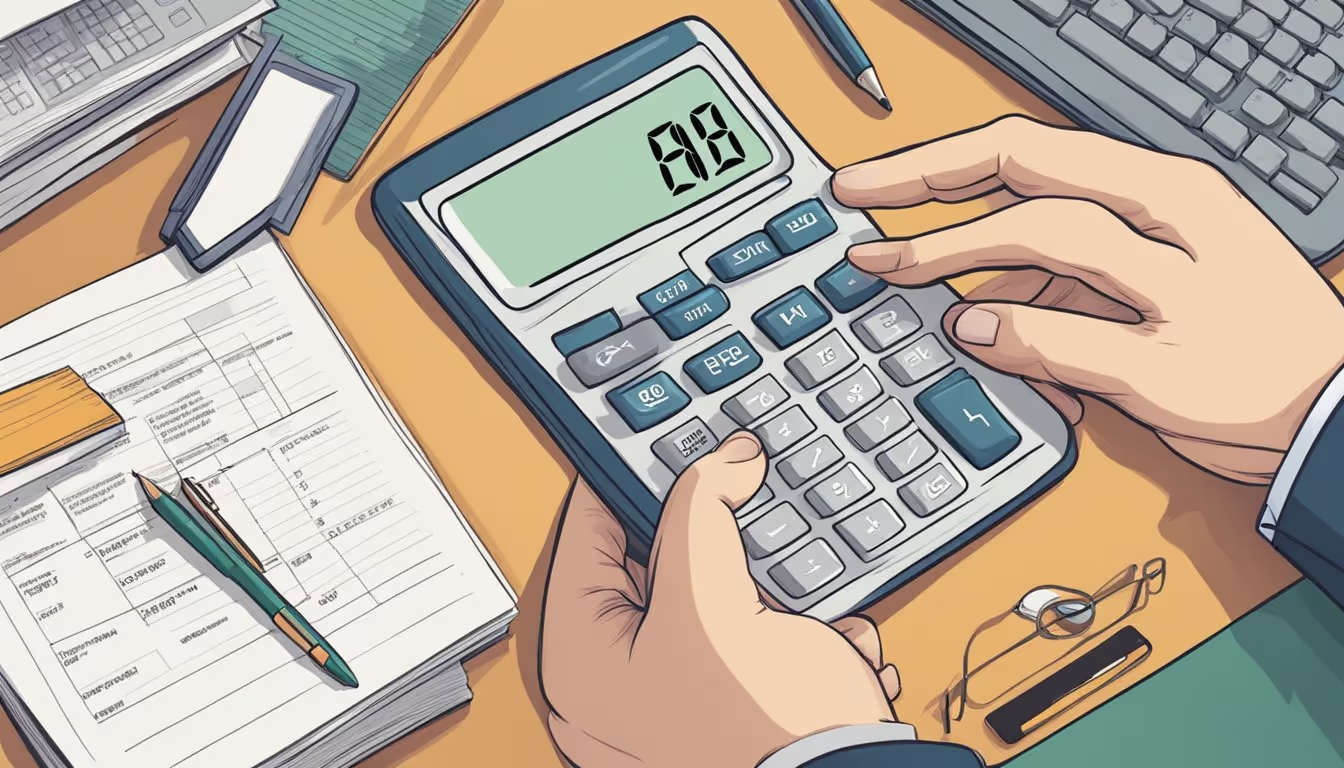How Hard is it to Get CPP Disability?
Overview of CPP disability benefits
Discover how hard it is to get CPP disability benefits in Canada. Learn about the eligibility criteria, application process, and common challenges applicants face.
.avif)
.avif)


How Hard is it to Get CPP Disability? Understanding the Challenges and Process
Many people wonder about the difficulty of obtaining CPP disability benefits. Applying for these benefits can be quite challenging, as many initial claims are denied. Understanding the requirements and the application process is essential for anyone considering this option.

The process involves proving that a disability severely affects a person’s ability to work, which can often require substantial documentation and medical evidence. Additionally, the review process may take time, leading to frustration for applicants seeking timely support.
Knowing the potential roadblocks and how to navigate them can make a significant difference. With the right information and approach, individuals can increase their chances of approval and ensure they receive the support they need.
Key Takeaways
- The application process for CPP disability is complex and often leads to initial denials.
- Strong medical documentation and evidence are crucial for a successful claim.
- Understanding the appeals process can help if a claim is denied.
Understanding CPP Disability Benefits
Canada Pension Plan (CPP) disability benefits provide financial support to those who cannot work due to a severe and prolonged disability. Understanding eligibility and the definition of a disability is crucial for applicants.
Eligibility Criteria
To qualify for CPP disability benefits, an individual must meet specific criteria. First, they must have made enough contributions to the CPP through their employment. This typically means working and paying into the plan for a certain number of years.
Applicants must also be under the age of 65 and have a disability that significantly impedes their ability to work. This includes both mental and physical disabilities. An assessment of the level of impairment is required, as the benefit is not available for disabilities that are temporary or do not prevent substantial gainful work.
Definition of a Severe and Prolonged Disability
A severe and prolonged disability is one that prevents an individual from performing any regular work for an extended period. To be considered severe, the condition must seriously limit the person's ability to carry out everyday activities.
The term "prolonged" means that the disability is expected to last for a minimum of one year. Conditions such as terminal illnesses, severe mental health disorders, and significant physical impairments typically meet this definition. Each case is reviewed on its own merits, and detailed medical documentation is often required to establish the severity and duration of the disability.
Application Process

The application process for CPP Disability involves several key steps that require specific documentation and adherence to set deadlines. Understanding these elements can help streamline the experience and improve the chances of approval.
Required Documentation
To apply for CPP Disability, individuals must gather essential documents. Key items include:
Medical Report: A medical report from a doctor or nurse practitioner is necessary. This report must accurately detail the individual's condition and how it impacts their ability to work.
Application Form: The official application form needs to be filled out completely. This form collects personal information, medical history, and work experience.
Proof of Work History: Documents proving work contributions to the Canada Pension Plan (CPP) are crucial. This may include pay stubs or tax documents.
Additional Information: Any supporting documents related to ongoing treatments, medications, or hospital visits should also be included.
Having the correct documentation ready can prevent delays in the application process.
Submission Procedures
Once all necessary documents are collected, applicants can submit their application. There are several options for submission:
Online: Submitting through the CPP Disability webpage is straightforward. Applicants create an account and follow the prompts.
By Mail: Individuals can also send their applications and documentation by postal mail. It is crucial to ensure everything is complete and securely packaged.
In Person: Some may choose to apply in person at a Service Canada office. This allows for face-to-face assistance with any questions.
Following the correct submission procedure is vital for a smooth application experience.
Deadlines and Timelines
Understanding deadlines helps applicants manage their expectations. The typical timeframe for processing a CPP Disability application is:
Initial Review: Most applications are reviewed within 90 days. However, it can take longer if more information is needed.
Follow-Up: After submission, Service Canada may contact the applicant for additional information or clarification.
Awaiting Decision: Once the application is reviewed, applicants will receive a decision. If approved, payments may start the following month.
Being aware of these timelines can help applicants stay informed and plan accordingly.
Challenges in Qualifying

Qualifying for CPP disability benefits can be difficult due to strict criteria and a complicated process. Many applicants face significant hurdles that can lead to denials or delays in receiving support.
Common Reasons for Denial
Several factors contribute to the denial of CPP disability applications. A primary reason is insufficient medical evidence. Applicants must provide clear documentation of their disability and its impact on their ability to work. If the evidence does not meet the required standards, the application may be rejected.
Another common reason is failure to show that the disability is permanent and severe. The Canada Pension Plan requires proof that the disability will last for a long time and severely limit the applicant's ability to perform any substantial work.
Lastly, not meeting the contribution requirements can lead to denial. Individuals must have made enough contributions to the CPP before they become eligible for benefits.
Navigating Bureaucratic Complexity
The CPP disability process involves navigating a complex system. Understanding the application process is essential for success. This includes knowing what forms to fill out, deadlines for submission, and the necessary documentation to include.
Many applicants find the language and terminology used in the application confusing. Misunderstanding these details can lead to mistakes that result in denials. Therefore, thorough research and possible legal assistance can be invaluable.
Maintaining clear and organized documentation is crucial. Keeping records of medical visits, treatments, and any changes in the disability condition will strengthen an application. Taking these steps can aid in navigating the bureaucratic challenges associated with CPP disability claims.
Appealing a Denied Claim

Facing a denied CPP disability claim can be frustrating. Understanding the processes available for appeal is crucial. There are two main steps: the Reconsideration process and Tribunal hearings. Each offers a chance to present additional evidence and make a stronger case.
Reconsideration Process
After a CPP disability claim denial, the first option is the Reconsideration process. The claimant can ask Service Canada to review its decision.
To initiate this, the claimant must submit a written request within 90 days of receiving the denial. It's important to include any new evidence or details that support the claim.
Service Canada will then review the case again and issue a new decision. If the result is still unfavorable, the claimant has the right to pursue further action through an appeal to the tribunal. Many claims are successful at this stage with proper documentation.
Tribunal Hearings
If the Reconsideration does not yield a positive outcome, the next step is to appeal to the Social Security Tribunal. This requires filing an appeal with the tribunal within 90 days of the reconsideration decision.
During the Tribunal hearing, the claimant presents their case. This includes explaining why the initial decision was incorrect and providing supporting evidence.
The tribunal consists of decision-makers who specialize in these cases. Their goal is to ensure all relevant information is taken into consideration. Claimants can bring a lawyer for assistance during these hearings. A well-prepared presentation can significantly increase the chances of a successful appeal.
Supporting Evidence and Documentation

Gathering the right evidence and documentation is crucial for a successful CPP disability application. This section details the two main types of supporting documents needed: medical reports and proof of income.
Medical Reports and History
Medical reports serve as a primary source of evidence for a CPP disability claim. They should include detailed documentation of the medical condition, treatment history, and prognosis. Physicians must explain how the condition affects the applicant's ability to work.
Key points to include in medical reports:
- Diagnosis details
- Treatment plans followed
- Impact on daily living and work capacity
Consistent follow-up appointments and supportive medical history strengthen the application. Providing recent evaluations is essential.
Additionally, health professionals can complete specific forms to support the claim, making their insights valuable.
Proof of Income and Contributions
Applicants must also provide proof of income and CPP contributions. This demonstrates eligibility for benefits. Necessary documents include:
- Recent pay stubs or T4 slips
- Tax returns for the past few years
- Records of CPP contributions
These documents confirm that the applicant has made sufficient contributions to qualify for CPP Disability benefits.
In some cases, gaps in contributions can occur due to health issues. Including a detailed explanation can help clarify situations and support the application process.
Long-Term Considerations

When someone applies for Canada Pension Plan (CPP) disability benefits, they should be aware of ongoing evaluations and how their health changes can impact their eligibility.
Periodic Eligibility Reviews
After receiving CPP disability benefits, individuals will undergo periodic eligibility reviews. These assessments help ensure that recipients still meet the necessary criteria for continued support.
The Canada Pension Plan may conduct these reviews every one to two years. During the review, recipients must provide updated medical information. This can include new reports from doctors or specialists detailing their condition and treatment plans.
If the review finds that the individual no longer meets the eligibility criteria, benefits may be reduced or stopped. It’s essential that applicants stay proactive about their health status and maintain clear records to support their case.
Changes in Medical Condition
A change in a person's medical condition can significantly affect their CPP disability benefits. If an individual’s condition improves, they might be expected to return to work or seek employment.
Conversely, if their condition worsens, they may need to report this to the CPP. In such cases, providing detailed documentation from healthcare providers can be crucial. This documentation should clearly outline the nature of the changes and any limitations faced.
Benefits can be adjusted based on the current situation. Keeping open communication with medical professionals ensures recipients are prepared to navigate these changes effectively.
Financial and Social Implications
Receiving CPP Disability benefits has significant financial and social implications for individuals.
Financial Impact:
Monthly Benefits: Individuals may receive a maximum monthly amount based on their contributions. In January 2024, this amount is capped at $1,613.54.
Supplementing Income: These benefits can help cover essential expenses, but may not be enough to fully support one's lifestyle. Many rely on additional income sources.
Tax Considerations: CPP Disability benefits are considered taxable income. This can affect the net amount received each month.
Social Impact:
Reduced Social Interaction: Disability can lead to isolation. Those unable to work regularly may find it challenging to engage socially.
Support Networks: Many individuals depend on family and friends for emotional and financial support. This can affect personal relationships over time.
Healthcare Accessibility: Individuals may need additional healthcare services, which can impose further financial strain. Access to resources may vary, influencing quality of life.
Navigating these implications requires careful planning. Individuals should understand their rights and seek support when needed. The challenges of financial stability and social engagement are critical aspects of life with a disability.
Professional Assistance
Navigating the CPP disability application process can be challenging. Seeking professional assistance can significantly improve the chances of a successful application for benefits. Legal representatives or advocates can provide valuable support and guidance.
Benefits of Legal Representation
Having legal representation can offer several advantages. First, attorneys experienced in CPP disability claims understand the requirements and can help ensure that all necessary documentation is submitted correctly. They can analyze medical records and guide clients on what information is crucial.
Legal representatives also help by preparing clients for interviews and hearings. They know the common pitfalls and can advise on how to avoid them. Moreover, they can negotiate with the Canada Pension Plan on behalf of their clients, enhancing the likelihood of a favorable outcome. This expertise is especially important since many initial applications are denied.
Finding a CPP Disability Advocate
Finding the right advocate is crucial. Start by researching lawyers or law firms specializing in disability claims. Many offer free consultations, allowing clients to discuss their cases without a financial commitment.
Referrals from friends or healthcare providers can also be useful. Online reviews and ratings provide insight into a lawyer’s success rate. Once a potential advocate is identified, it’s essential to ask about their experience with CPP disability cases and any fees involved. This clarity can help clients make an informed choice, ensuring they receive the best possible support for their application.
Frequently Asked Questions
This section addresses important questions about CPP disability benefits. It covers eligibility, application processes, and reasons for denial. Understanding these aspects can clarify what applicants need to know.
Who is eligible for CPP disability benefits?
To qualify for CPP disability benefits, an individual must be between 18 and 65 years old. They must have made contributions to the Canada Pension Plan. Additionally, they need to have a severe and prolonged disability that prevents them from working.
What are the criteria for CPP disability approval?
Approval for CPP disability benefits requires meeting specific medical and contribution criteria. The applicant must have a long-term disability, and their medical condition must be severe enough to hinder work capability. The Service Canada representative reviews the application to determine if all criteria are met.
How can you apply for CPP disability benefits?
To apply for CPP disability benefits, one must complete an application form available from Service Canada. Applicants may need to provide medical documentation about their condition. It is important to submit all required information to avoid delays in the approval process.
What are the common reasons for CPP disability denial?
Common reasons for denial include insufficient medical evidence of the disability, failure to meet contribution requirements, or not demonstrating how the condition affects the ability to work. Many applicants do not provide enough details in their application.
How is the CPP disability benefit amount calculated?
The CPP disability benefit amount is calculated based on the applicant’s earnings and the contributions made to the Canada Pension Plan. The more a person has contributed, the higher the monthly benefit can be. Calculations consider both the number of years of contributions and the average annual earnings.
Are there specific medical conditions that qualify for CPP disability?
While there is no specific list of qualifying medical conditions, certain severe disabilities are more likely to be approved. Conditions such as cancer, heart disease, or chronic pain can qualify if they significantly impair a person’s ability to work. Each application is assessed on a case-by-case basis.
.avif)
.avif)
































